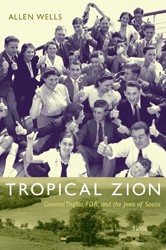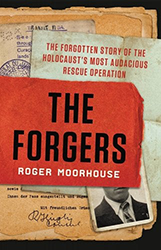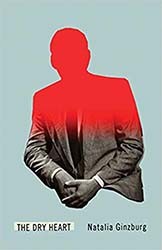Looking For Alicia begins when Canadian academic Marc Raboy googles his own name and discovers an entire network of Raboys in Argentina. He travels to meet them, but what begins as a simple family story quickly transforms itself into a Dantesque journey through “the minefields of Argentina’s historical memory.”
Alicia Raboy was a journalist and a member of the Montoneros, an Argentinian urban guerrilla group. In 1976, Alicia was ambushed by the secret police of the right-wing Junta that overthrew the democratically elected government of Juan Perón and ruled Argentina from 1976 to 1983. She vanished into the labyrinth of clandestine detention and torture centers that were fixtures of Argentina under the Junta, never to be seen again. She became one of the Desaparecidos, “the disappeared,” one of the estimated thirty thousand students, left-wing activists, intellectuals, and trade unionists who were casualties of Argentina’s “Dirty War.”
It’s not just their shared name that draws Marc to Alicia’s story. They are the same age and, as a young man, Marc was an activist as well, drawn into the ferment of revolutionary politics in 1970s Québec. Canada was not Argentina and Marc never ran the risks of his Argentinian contemporaries — a favorite method of “disappearing” people was to torture them almost to death, drug them, then toss them while still alive from military aircraft into the Rio de la Plata. But in her rebellious, uncompromising spirit, her absolute conviction that a better world is possible, Marc recognizes a kindred spirit. “Alicia was not a dove … ” recalls one old comrade, “ … [s]he was very strong. She had the flame. She was our Joan of Arc.”
Forty-five years later, it is easy to forget just how horrific the military regimes that ruled Argentina, Chile and Uruguay were. As the “most reliable agent[s] for U.S. interests in the region … ‚” however, they transformed the latter stages of the Cold War into a Hot War on their own people, all in the interests of preservation — as the Argentinian junta put it —of “Western, Christian civilization.”
What comes across very clearly in Raboy’s rendering of Alicia’s story is how discredited the notion of the “revolutionary” has become, especially in a left-wing context. But over the past century, to be a revolutionary has often been the only moral response to a world gone mad. Certainly, South America under the Juntas qualifies. But Alicia’s story is also a reminder of how often it is Jews who hear, and heed, that call. Argentinian Jews like Alicia were at the forefront of resistance to cruelty and repression. The Junta didn’t just target Jews, but it was particularly brutal in its treatment of Jews — partly because of its “deformed” version of Christianity and perhaps also because, like Alicia, so many Jewish leftists and intellectuals opposed it. In an environment in which “physical extermination of leftists was the dictatorship’s ‘final solution,’” Argentinian Jews had little choice.
Looking for Alicia is an important book. In giving a face and a name to one principled victim of the “Dirty War,” it memorializes all of them. It is a stark reminder that there are moral choices to be made. Like Alicia, eventually we all must decide which side we are on.
Angus Smith is a retired Canadian intelligence official, writer and Jewish educator who lives in rural Nova Scotia.





